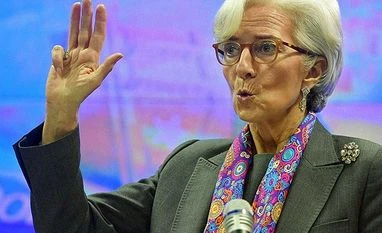With these reforms, which will be effected in the coming days, India’s quota in IMF would rise to 2.7 per cent, from the existing 2.44 per cent. Also, the voting share of India in IMF would increase to 2.6 per cent from 2.34 per cent.
In a statement, IMF said the reforms reflected the increasing role of dynamic emerging market and developing countries. This would reinforce its credibility, effectiveness and legitimacy, it added.
More From This Section
For the first time, four emerging market countries of the Bric bloc —Brazil, China, India, and Russia —will be among the 10 largest members of IMF.
Other top 10 members include the US, Japan, and the four largest European countries — France, Germany, Italy, and the UK.
The reforms also increase the financial strength of IMF, by doubling its permanent capital resources to 477 billion special drawing rights ($659 billion).
Also, for the first time, the IMF board will consist entirely of elected executive directors, ending the category of appointed executive directors.
Currently, the members with the five largest quotas appoint an executive director. The scope for appointing a second alternate executive director in multi-country constituencies with seven or more members has been increased to enhance these constituencies' representation in the executive board.
As a result, 13 constituencies are currently eligible to appoint an additional alternate executive director, it said.
IMF said following the effectiveness of the 14th General Review of Quotas, the focus will now turn to work on the 15th General Review of Quotas and securing the necessary broad consensus, including on a new quota formula.
With the entry into force of the Board Reform Amendment and all other general effectiveness conditions met, members can now pay for their quota increases to make them effective.
This process is expected to be substantially completed within one month, IMF said. These reforms will ensure the fund is able to better meet and represent the needs of its members in a rapidly changing global environment.
"Today marks a crucial step forward and it is not the end of change as our efforts to strengthen the IMF's governance will continue," IMF Managing Director Christine Lagarde said in a statement.
The IMF reforms that came into effect on January 27 was approved by it in 2010, but was unable to implement it in the absence of its approval by the US Congress, which it did last year.
POSITION STRENGTHENS
- India’s quota in IMF to rise to 2.7 per cent from the existing 2.44 per cent
- Voting share of India would rise to 2.6 per cent from the current 2.34 per cent
)